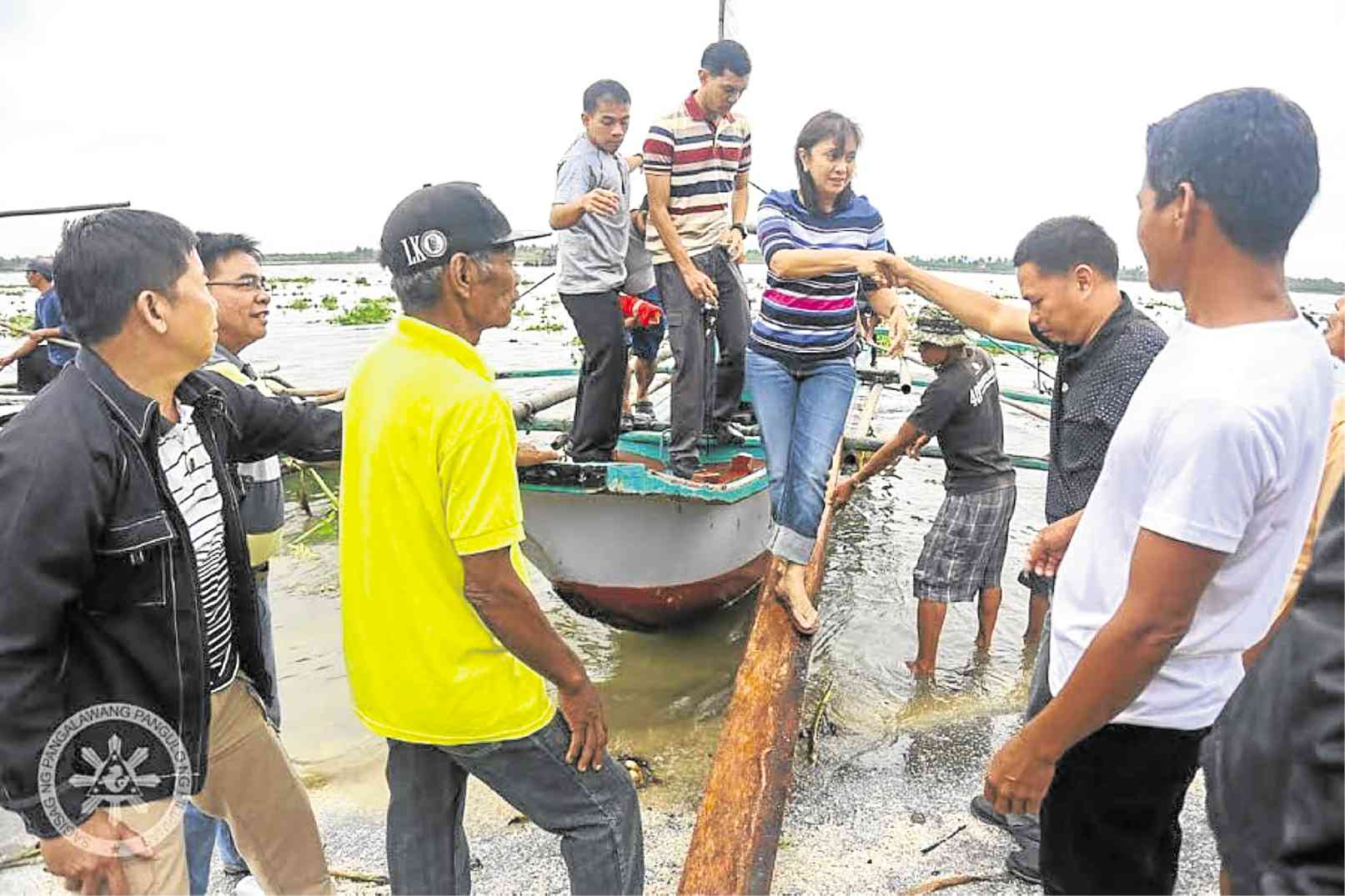
VICE President Leni Robredo is welcomed by residents and officials of Punta Tarawal in Calabanga town, Camarines Sur province. She announced a package of projects for one of the poorest communities in Bicol. CONTRIBUTED PHOTO
CALABANGA, Camarines Sur―Help is finally within arm’s reach in the remote village of Punta Tarawal, a month after Vice President Leni Robredo chose its leader, Ronaldo Coner, to officiate her oath of office.
On Saturday, Robredo returned to the seaside village in Calabanga town, one of the poorest in Bicol, and relayed to Coner, the barangay chair, the good news that several projects had already been lined up to help the more than residents there.
There is no road connecting the community to the town center and no potable water for its people.
The road, Coner said, could wait. Building it through mangroves and nipa palm trees poses a challenge to the government, he said.
Water supply, however, is coming soon.
Robredo said since the time Punta Tarawal was featured during her June 30 inauguration, several groups, including high school classmates of former President Benigno Aquino III at Ateneo de Manila University, had responded to the plea of the village.
Agap (Aklat, Gabay, Aruga tungo sa Pag-angat at Pag-asa) will build a two-story classroom for Punta Tarawal Elementary School, according to its trustee and Aquino’s classmate, Eddie Galvez.
Since it was founded in 2010, Agap has been building classrooms equipped with a library and bathroom. To date, it has built 1,070 classrooms all over the country.
Galvez said it would take three months to build the classroom, furnish it and stack its shelves with 350 books.
Only 51 pupils are attending multigrade classes in the school, said head teacher Julius Guerrero. They include six in kindergarten, five in Grade 1, six in Grade 2, four in Grade 3, nine in Grade 4, 11 in Grade 5, and 10 in Grade 6.
Guerrero said he and another teacher were handling the multigrade classes, and a third would join the staff soon.
The school compound has an area of 1,000 square meters and is surrounded by mangroves and nipa. It has two buildings and a condemned one.
Robredo said she had suggested a new two-story classroom building which could also function as an evacuation center during calamities.
Punta Tarawal is not ideal as a residential area because of it is vulnerable to storm surges, she said. But residents do not want to be relocated because they depend on the sea for their livelihood.
“There are so many problems here because of its location,” Robredo said. Construction of a seawall in the village will not be finished this year, but that of a covered court, which can be used for community events, will start soon, she said.
To ensure potable water to the community, the Vice President said she had talked to Calabanga Water District to connect Punta Tarawal to the town’s water system. The effort will cost about P19 million, she said.
At present, villagers are spending P12 for every 20-liter container of water―P5 for the water and P7 for delivery cost. Each household consumes an average of five containers a day or the equivalent of P60, a steep amount for the residents.